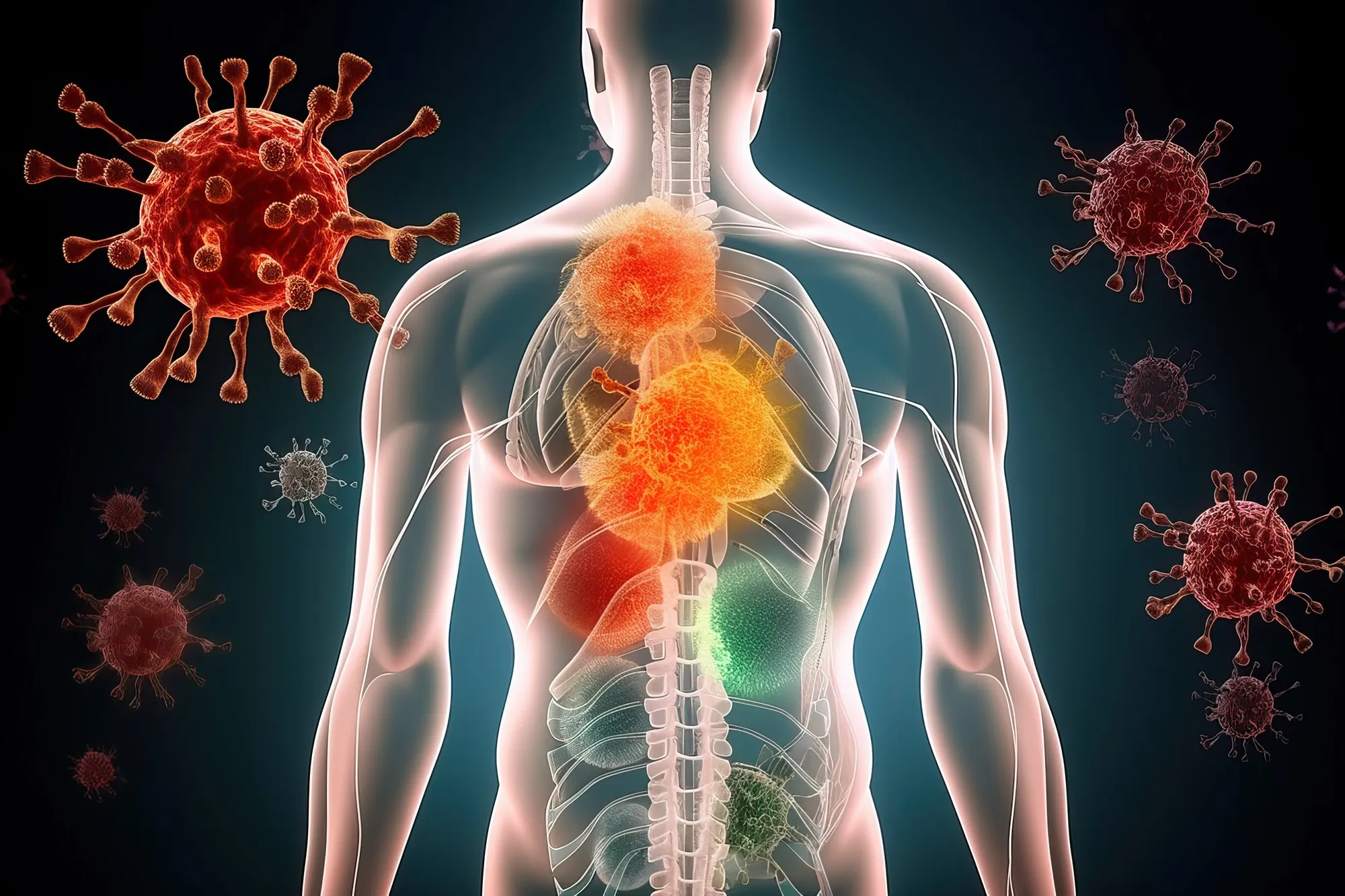
Immunodeficiency is a medical condition characterized by a weakened immune system, making individuals more susceptible to infections, diseases, and certain types of cancers. It can be congenital (present at birth) or developed later in life due to factors such as infections (like HIV), certain medications (such as chemotherapy), or chronic illnesses. People with immunodeficiency often experience frequent infections that are more severe or longer-lasting than usual. Common symptoms include recurrent respiratory infections, sinusitis, skin infections, and gastrointestinal issues. Moreover, treatment for immunodeficiency focuses on managing symptoms and preventing infections through antibiotics, antifungals, and antiviral medications. In some cases, immunoglobulin replacement therapy or stem cell transplants may be necessary to restore or boost immune function.
Immunodeficiency can affect people of all ages, but it is most commonly seen in individuals with chronic illnesses, those undergoing cancer treatment, or people with genetic disorders. When seeking treatment for immunodeficiency, patients can expect a detailed assessment by a specialist to determine the best course of action. The treatment plan may include regular monitoring, lifestyle adjustments, and ongoing medication management. The treatment period varies depending on the complexity of the disease and the individual’s response to therapy, but it often requires long-term management. If you or a loved one is experiencing frequent or severe infections, book an appointment at Omega Health Clinics in Modesto, CA, for a thorough evaluation and personalized treatment plan.
Immunodeficiency, especially when congenital, typically cannot be cured. However, the symptoms can be effectively addressed with the right treatments. For acquired immunodeficiency, such as that caused by infections or medications, addressing the underlying cause may improve the immune function.
In some cases, treatments like immunoglobulin replacement therapy or stem cell transplants can significantly improve the immune system’s ability to function, but these do not constitute a complete cure. Treatment aims to reduce symptoms, prevent infections, and improve the patient’s quality of life.
Immunodeficiency is diagnosed through a combination of medical history, physical examination, and specialized tests that evaluate the function of the immune system. Initially, a healthcare provider will review the patient’s history of infections, illnesses, and any chronic conditions. Aside from that, blood tests are also commonly used to measure the levels of antibodies, immune cells, and other components of the immune system. These tests can help identify specific deficiencies or abnormalities.
In some cases, genetic testing may be necessary, particularly if a congenital form of immunodeficiency is suspected. Further diagnostic tests, such as skin tests or imaging procedures, may be conducted to assess the immune response or identify any associated complications.
Managing immunodeficiency through diet involves including foods that support immune health. The consumption of vitamin C-rich fruits and leafy greens boosts immune function. Protein foods like lean meats, fish and plant-based options like beans provide essential nutrients for immune cell production. Also, healthy fats from omega-3-rich foods, like fatty fish and walnuts, can help regulate the immune system. Probiotics from yogurt and fermented foods support gut health, which is vital for immunity. Additionally, garlic, onions, nuts, seeds, and whole grains offer antioxidants and anti-inflammatory benefits, improving immune function and managing immunodeficiency symptoms.
Individuals with immunodeficiency may be advised to receive certain vaccines to prevent infections. In general, inactivated (non-live) vaccines are considered safe and often recommended, as they do not pose a risk of causing the disease in individuals with weakened immune systems. Examples include the annual flu shot, the pneumococcal vaccine, and the hepatitis B vaccine.
Furthermore, live vaccines, which contain a weakened form of the virus or bacteria, are usually avoided because they can potentially cause illness in someone with immunodeficiency. It’s crucial for individuals with immunodeficiency to consult with their doctor to determine which vaccines are appropriate based on their specific condition and overall health.
Stress can negatively impact the immune system. Chronic stress has been proven to compromise the immune system by altering immune responses, making the body more susceptible to infections and illnesses. In individuals with immunodeficiency, stress can worsen their condition by further impairing the immune system’s ability to function properly. This can lead to recurring and severe infections and slower recovery times.
Untreated immunodeficiency can lead to recurrent, severe infections that may become life-threatening. There is also an increased risk of developing certain cancers, autoimmune disorders, and other complications due to the impaired immune response. Over time, untreated immunodeficiency can significantly compromise overall health and quality of life, making early diagnosis and management crucial to preventing these potential outcomes.